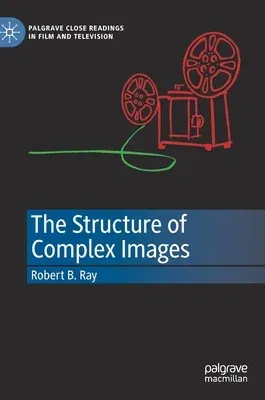Robert B Ray
(Author)The Structure of Complex Images (2020)Hardcover - 2020, 10 May 2020

Qty
1
Turbo
Ships in 2 - 3 days
In Stock
Free Delivery
Cash on Delivery
15 Days
Free Returns
Secure Checkout

Part of Series
Palgrave Close Readings in Film and Television
Print Length
259 pages
Language
English
Publisher
Palgrave MacMillan
Date Published
10 May 2020
ISBN-10
303040630X
ISBN-13
9783030406301
Description
Product Details
Author:
Book Edition:
2020
Book Format:
Hardcover
Country of Origin:
NL
Date Published:
10 May 2020
Dimensions:
21.01 x
14.81 x
1.6 cm
ISBN-10:
303040630X
ISBN-13:
9783030406301
Language:
English
Location:
Cham
Pages:
259
Publisher:
Weight:
476.27 gm